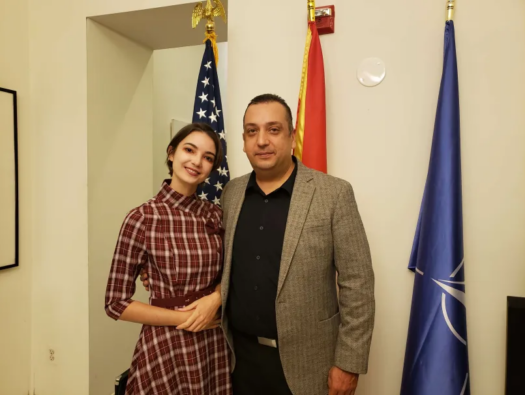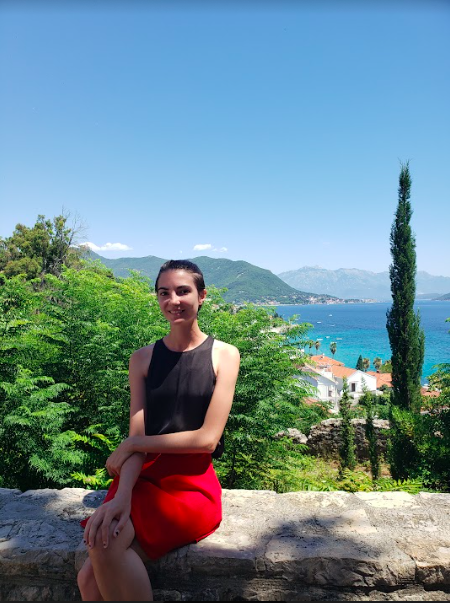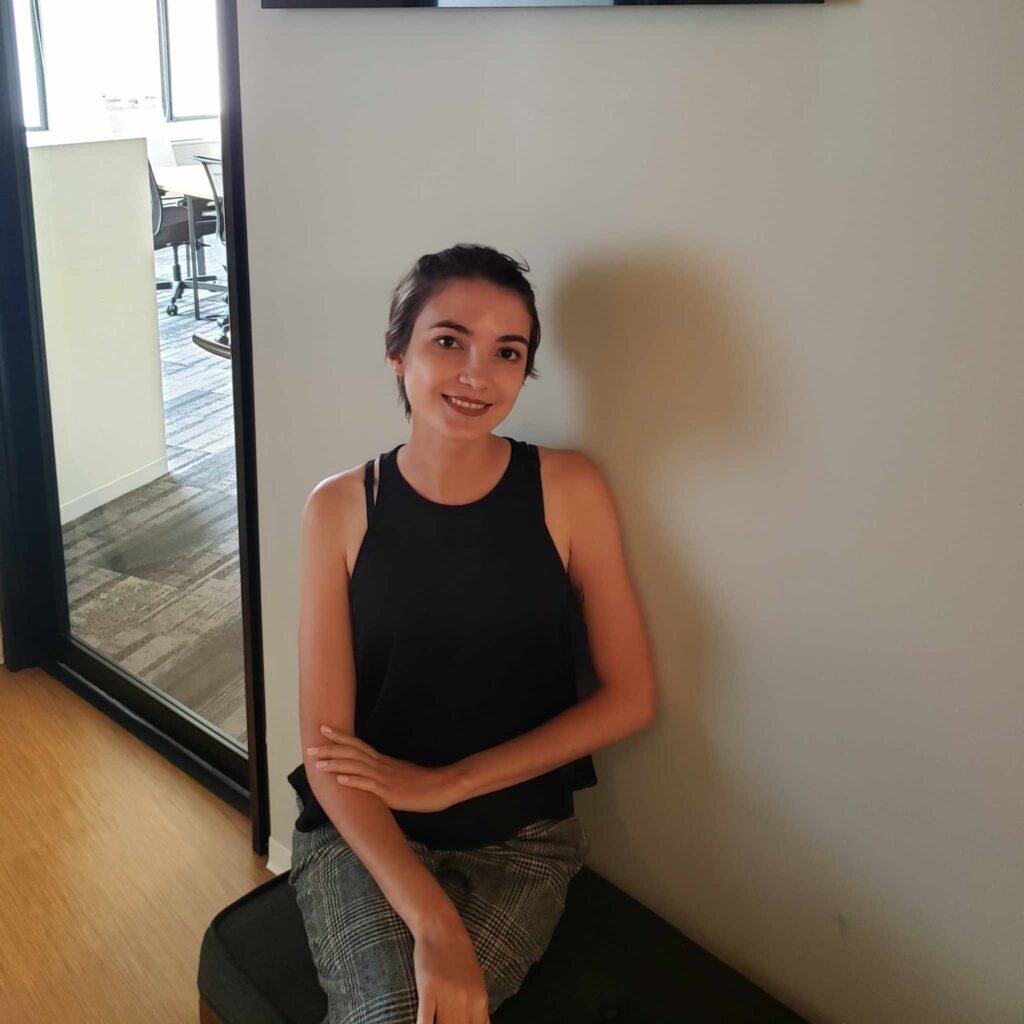The Pursuit of Human Rights is the Greatest Passion of Them All
Mia Baxley December 14, 2023
In many ways, the pursuit of human rights has always been present in my life, regardless of my changes in what I thought was my “dream career.” I did not “choose” human rights; rather, I believe it was the calling that chose me.
The elementary school version of myself, who wanted to be a veterinarian, spent many fruitful hours memorizing national capitals and flags. In middle school, when I was insistent on my goals of becoming an architect, I designed a series of humanitarian-focused homes in some of the developing countries I learned about in my favorite encyclopedia. When Haiti was struck by a devastating earthquake in January of 2010, I was in my school counselor’s office days later, asking what we as a school could do to help. Those ideas turned into the Valentine-themed “Hearts for Haiti” wall that colored the window of Pembroke Middle School’s main lobby. Years later, I chose political science for my college studies when I learned that my passion for the world could become a reasonable career path.

Human rights, however, is not a career path to be taken lightly. With the world’s many complex problems, combined with the real-time exposure of atrocities and human suffering, the human rights field has the power to break the spirit of anyone who dares to underestimate it. It requires a special kind of love and willpower.
My first formative career experience was being one of the thousands in attendance at the Srebrenica Genocide’s 27th anniversary and its accompanying mass funeral. I observed my surroundings and realized I was seeing, with my own two eyes, scenes that had only previously appeared in my research. I’ve been disheartened by the dissonance between my pursuit of knowledge on the tragedies in Nagorno-Karabakh, Sudan, and the Congo and little, if any, media attention or serious action from the international community.

Yet, in spite of its heartbreak, working in human rights has been the most rewarding experience that I have ever done—or will ever do, for that matter. This line of work means that you become uncomfortably privy to some of the most difficult aspects of the human experience. However, on the opposite end of that spectrum, I’m also fortunate enough to see some of the best parts of humanity. The capstone of my summer in Bosnia was my Srebrenica trip, but on my second day in the country, I watched a group of elderly friends in Sarajevo’s Old Town happily laugh and clap along to a folk quartet playing their favorite song. I’ve been at the receiving end of someone’s deep excitement to teach me a dance from their culture. I’ve been included in inside jokes for languages I can’t speak. I’ve stepped into rooms knowing I was a newcomer and left feeling like a member of a brand new family.
The overall human experience is defined by inclusion and the knowledge that, despite our various dividing lines, there’s one medium out there to unite virtually anyone willing to connect with their fellow humans. No one, even in the middle of wide-scale suffering, is totally defined by the things that have harmed them. Likewise, as an optimist, I believe that no one is born with an innate feeling of hatred. Cultural divides are started by fears of the unknown and expanded by beliefs in the differences of the “other.” For me, I’ve discovered some of my most meaningful relationships with those who have virtually nothing in common with me.
Since my first day at Search for Common Ground, my work days have been motivated by the knowledge that I will have satisfied my curiosity and desire to learn something new. I cover a broad range of issues as Search’s Scoville Fellow, yet I never worry about feeling overwhelmed. My work ebbs and flows through what I like to call “theme weeks” – I may dedicate one week to research on how to best engage with the US government, while my next pivots to assisting with one of the current Women, Peace, and Security (WPS) projects on the docket. This routine gives me the perfect amount of time to dive into a new topic and learn all that I can before I move on to the next project.

I used to long for a career where I felt that my voice mattered. The Scoville Fellowship has thus far given me that necessary first step. In my dealings around DC, I still find myself pleasantly surprised when a colleague from one of my coalition groups calls me a close partner. It makes me feel a little more visible in a room full of intelligent and interesting people. I cannot be more grateful for the many ways that I have blossomed as a person and as a human rights activist in my time so far with Search and the Scoville Fellowship.
Human rights violations are not “faraway” issues. In a diverse nation like the United States, your next-door neighbor, your co-worker, or a random stranger in public may be struggling to process the loss of their historical homeland or the deaths of thousands of their kin being broadcast on the news or social media. Descendents of genocide fight every day to keep alive the memories of their lost loved ones. Many people carry out their day-to-day lives while carrying the emotional burdens created by the generational trauma of human atrocities. For those fortunate enough to have escaped these realities, desensitization to the world’s problems can lead to apathy and the destruction of one’s humanity.
Many activists may feel a crushing, immeasurable need to make the most powerful impact on the state of peace in the world. This method of pursuing peace can sometimes seem hopeless. At the end of the day, all that is necessary to make a difference is to educate one mind, help one life, or empower one voice to speak up.
Mia Baxley is a Fall 2023 Scoville Fellow with Search for Common Ground.
